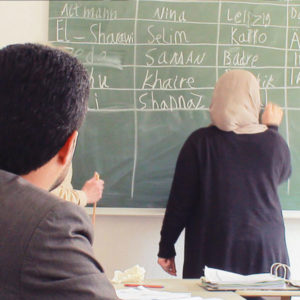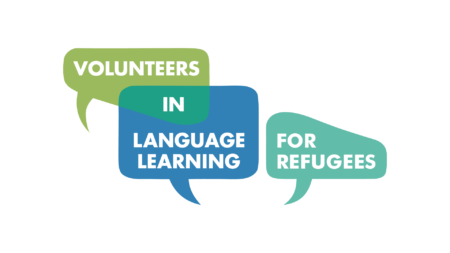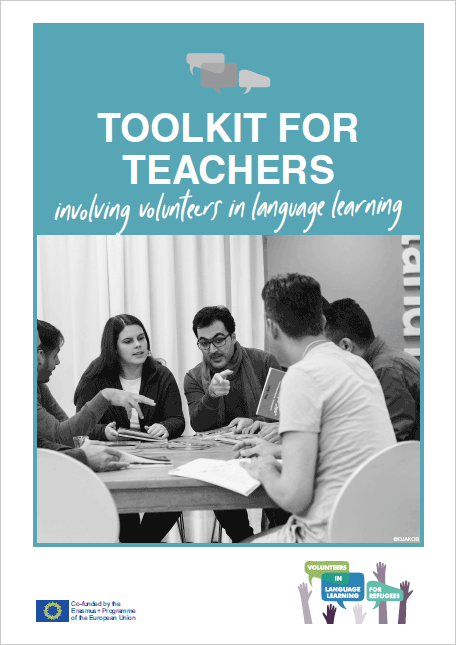For Teachers

How to use this Toolkit
Welcome to the teacher’s toolkit. This is a guide for language teachers who want to work well with volunteers, in order to support refugees to learn the language of their new country.
It’s been written by language teachers from educational organisations across five European countries, and inspired by many other teachers and groups that we’ve talked to as part of our research . Teachers and volunteers across Europe are finding innovative and effective ways to support refugees to learn new languages and we celebrate some of these projects in case studies throughout his toolkit.
There is huge variety in the ways that volunteers can support language learning. It’s likely that not every chapter in this guide will be relevant for every teacher. Instead of being read from the cover to cover, the toolkit can be used as a resource for guidance, support and inspiration that you can dip in and out of as needed.
The introductory sections of this toolkit look at the wider context of volunteering and then explore the practicalities of working with volunteers. What are the benefits and pitfalls of involving volunteers in language teaching? How can you recruit effective volunteers in the first place? How do you establish a good working relationship with a new volunteer? How can you build in an effective induction and evaluative practices with your volunteers?
Most of this toolkit, however, is dedicated to practical ideas and tools for lessons – with a specific focus on exercises and activities that involve your volunteer effectively. Most teachers will be working with volunteers in a classroom setting, and the exercises found in this guide reflect this. The practical tools on offer don’t rely on resources like projectors or digital whiteboards, in order to make this toolkit useful for a wider range of teachers.
At the end of this toolkit you will find guidance for evaluation with your volunteer and a number of points for reflection. We have found that our teaching practice is improved by a consideration of the more nuanced questions around our work. Good teaching is often as much about attitude as it is about technical prowess and collaboration with volunteers in refugee language teaching is no exception.
"My volunteer was great. In the classroom, we had an elderly couple and one of them had hearing difficulties so whenever we were doing group discussion it was really hard for him to join in. The volunteer spoke their language and was able to work with them separately and involve them in a separate discussion at times and just generally make sure they were ok. It was honestly so useful having her there."
Teacher, UK

